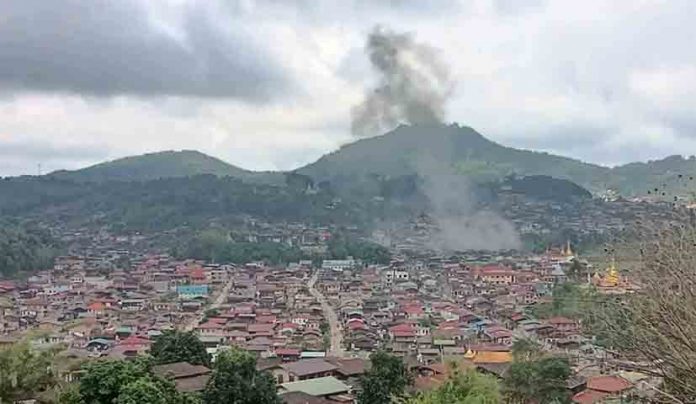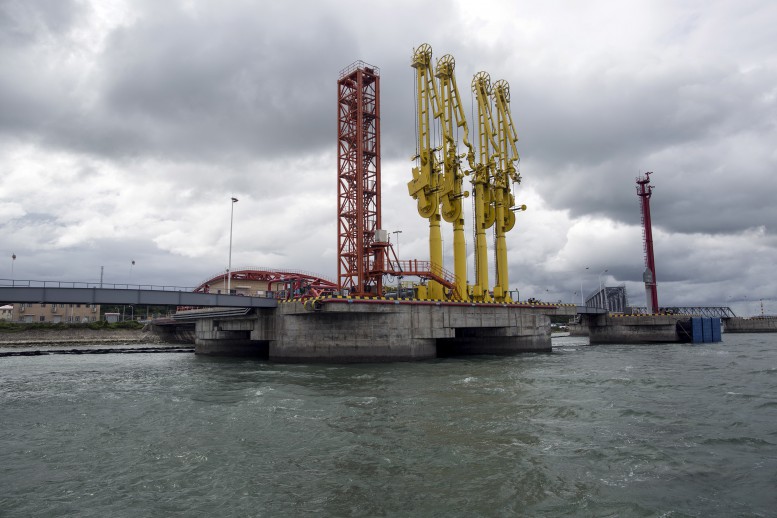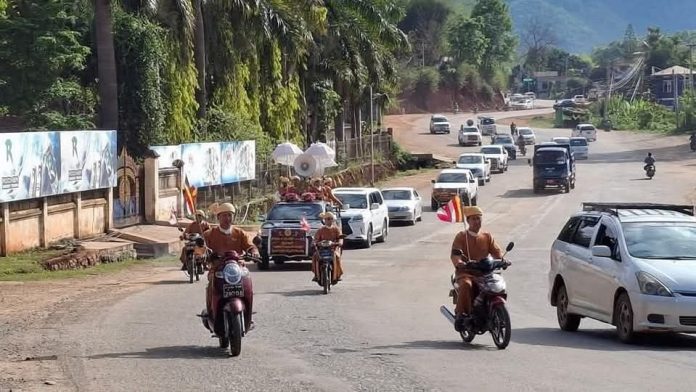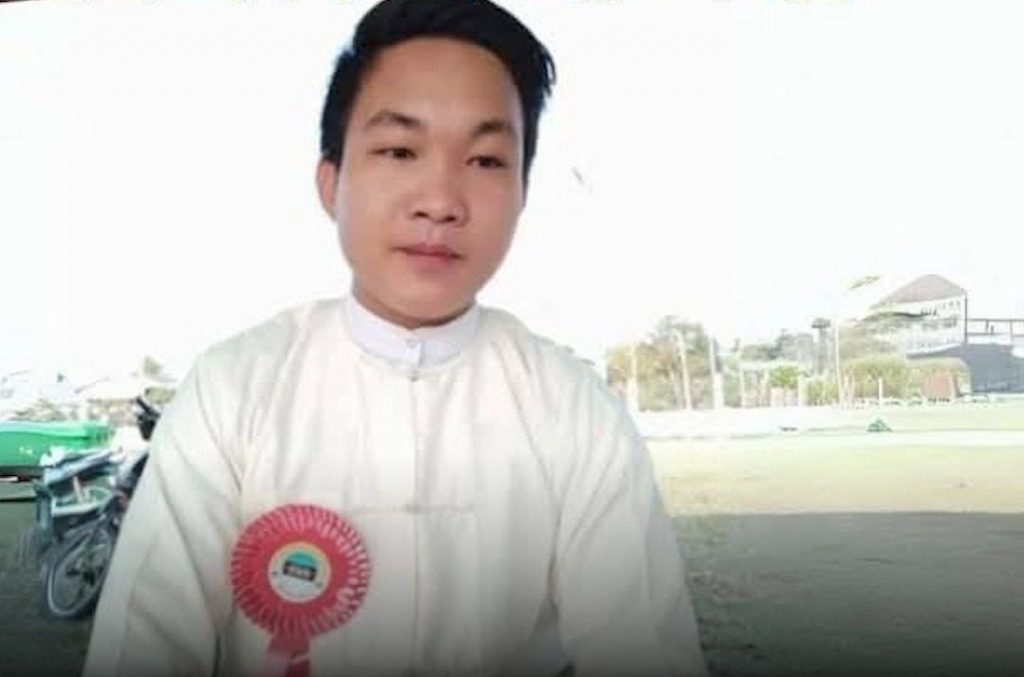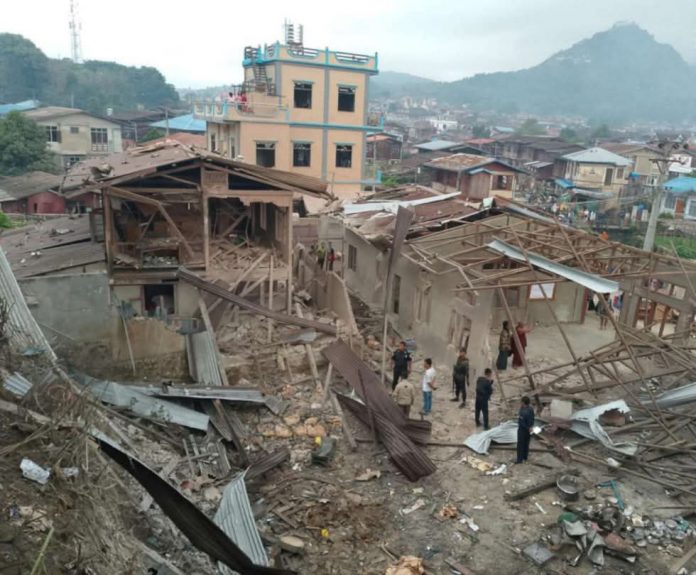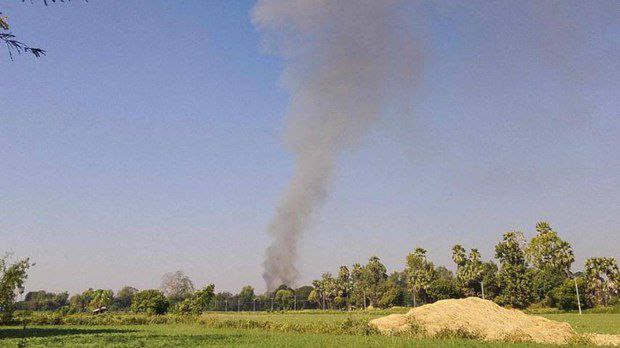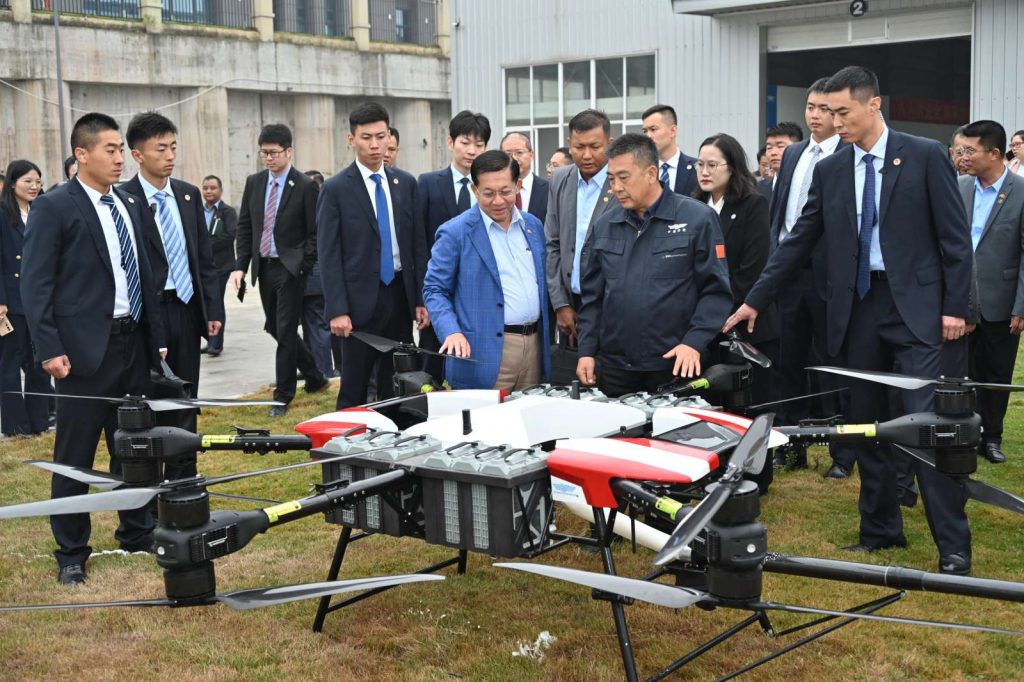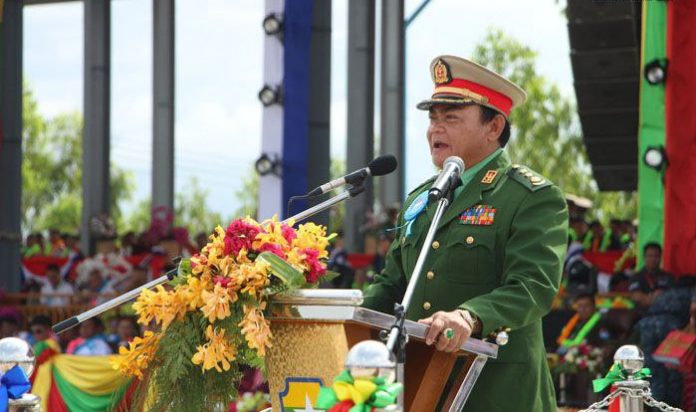Guest contributor
Moe Gyo
Myanmar’s rapid descent into chaos following the 2021 military coup has led to widespread instability that threatens both the nation’s sovereignty and regional security.
The military, which overthrew the democratically elected civilian government, has faced growing resistance from various ethnic armed organizations and pro-democracy forces.
This has severely weakened the military’s ability to maintain control and protect the country’s infrastructure. The situation in Myanmar now presents a paradox: while the country is unraveling, its strategic importance—particularly to China—remains undiminished.
In light of this, China may opt to facilitate a coup within the military as a covert yet effective strategy to protect its significant economic investments and secure its long-term geopolitical objectives.
Myanmar’s strategic importance to China cannot be overstated. It serves as a critical link between China’s southwestern provinces and the Indian Ocean, offering a direct and less vulnerable route for energy supplies.
The China-Myanmar Economic Corridor (CMEC), a vital component of the Belt and Road Initiative, is intended to connect China’s landlocked southwestern regions to the Indian Ocean via Myanmar, bypassing the more congested and vulnerable Malacca Strait.
The project includes key infrastructure such as the Kyaukpyu deep-sea port and pipelines running from Myanmar’s Rakhine State to China’s Yunnan Province.
These assets are pivotal for China’s energy security, offering a more secure route for transporting oil and natural gas and reducing China’s reliance on maritime shipping routes susceptible to geopolitical tensions.
However, Myanmar’s growing instability is jeopardizing these investments.
If Myanmar were to descend further into anarchy, China could lose not only its investments but also its foothold in a region crucial to its long-term economic and security ambitions.
Thus, instability within Myanmar poses a grave risk to China’s regional security and economic interests.
The most straightforward way for China to protect its investments in Myanmar would be through direct military intervention.
However, such an action would likely result in severe international backlash, particularly from the West and the Association of Southeast Asian Nations (ASEAN).
Military intervention would also compromise Myanmar’s sovereignty, turning the country into a proxy state for China, which could further alienate the Myanmar population and invite long-term resistance.
Furthermore, a direct military presence would place Chinese troops in the crossfire of Myanmar’s ongoing civil conflict, risking significant casualties and prolonged involvement.
Instead, China is likely to favor a covert strategy to facilitate an internal coup within the military—a move that allows it to maintain plausible deniability.
This approach offers several advantages: it avoids the risks of direct intervention, minimizes international backlash, and ensures that Myanmar retains its formal sovereignty while aligning more closely with Chinese interests.
By supporting a coup from within, China can ensure that the new leadership is pro-China without incurring the political costs of overt intervention.
This option also offers a more nuanced means of managing Myanmar’s internal conflicts, restoring stability while safeguarding China’s regional investments.
If China determines that the current leadership is incapable of restoring order or protecting its interests, it may opt to engineer an internal coup as a low-visibility yet decisive solution. Several key trigger points could prompt China to take this course of action.
As it continues to lose ground and fails to govern effectively, the risk of national fragmentation increases.
For China, this weakening of the military poses a serious threat to the stability necessary for protecting its major infrastructure projects and energy corridors.
A fragmented Myanmar endangers China’s strategic ambitions, making internal military realignment an increasingly attractive option.
Threats to the China-Myanmar Economic Corridor (CMEC) serve as another potential trigger for Chinese intervention. Sabotage or occupation of critical infrastructure, such as the Kyaukpyu deep-sea port or the oil and gas pipelines linking Myanmar to Yunnan Province, represents a direct challenge to China’s economic interests and energy security.
If these projects are compromised, China may view a regime change in Naypyidaw as a necessary step to secure and stabilize these high-value assets.
Civil conflict in Myanmar that leads to a refugee or humanitarian crisis spilling over into China’s Yunnan Province could also prompt action. Large-scale displacement and unrest at the border would raise domestic security concerns for China, pressuring it to restore order on its periphery.
In this scenario, China may see a covertly supported leadership change as a necessary measure to stabilize the situation and prevent the crisis from affecting its own territory.
Finally, a breakdown of command-and-control manifested by rogue field units or disobedient commanders would signal the onset of military anarchy.
Such a collapse would not only render the regime incapable of enforcing national cohesion but would also make it a liability for Chinese interests.
To prevent the complete disintegration of Myanmar’s military apparatus, China may back a faction capable of restoring central control and ensuring a disciplined, pro-China command structure.
The long-term impact of such a coup would be significant. Myanmar would become even more deeply integrated into China’s economic and political sphere, with its leadership reliant on Chinese patronage.
Myanmar’s instability poses a serious threat to China’s regional ambitions and security.
Faced with the possibility of prolonged chaos and the erosion of its strategic investments, China may view the facilitation of a coup as a necessary step to restore order and secure its interests.
A covertly supported coup presents a strategic solution that allows China to preserve plausible deniability while protecting its investments and influence.
By combining intelligence, political maneuvering, military assistance, and economic leverage, China can shape the outcome of Myanmar’s internal crisis in its favor.
The potential rewards are substantial—securing vital infrastructure, maintaining energy flows, and stabilizing a key regional partner. However, the risks are equally significant.
A failed coup in Myanmar could deepen the conflict, trigger wider unrest, provoke international condemnation, and damage China’s regional standing.
Nonetheless, with careful execution, China could not only restore stability in Myanmar but also solidify its role as the dominant power shaping Southeast Asia’s geopolitical future.
Moe Gyo is a political consultant and strategist working on the Thailand-Myanmar border.
DVB publishes a diversity of opinions that does not reflect DVB editorial policy. We’d like to hear what you think about this or any of our stories: [email protected]


